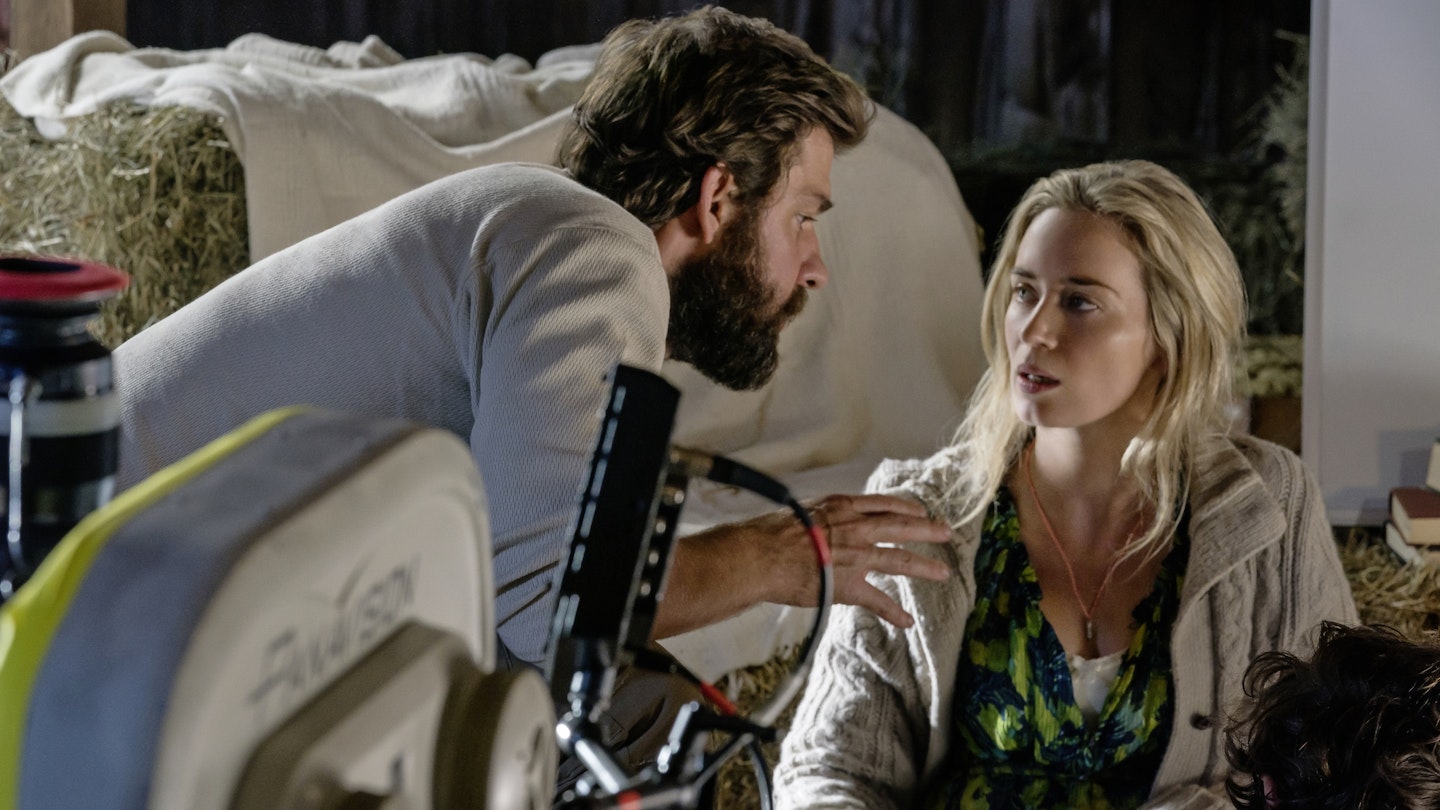Once Jim in The Office. Now director of this year’s most high-concept chiller. John Krasinski writes exclusively for Empire about his journey to A Quiet Place, and how the near-silent film became a family affair.
People ask me if I always wanted to be a director. And the truth is, no. When I first started out, I felt so lucky to be able to make a living as an actor it didn’t even cross my mind... and I didn’t want to jinx it. I was never one of those actors that said, “Well, when this acting thing is over… I’ll just direct.” I had way too much respect for the directors I had worked with to view the transition as some kind of foregone conclusion.
In order for me to choose to direct something, I have to feel that I am the best person for the job.
My first directing gig actually came about by total happenstance. Before I got The Office I had adapted this book by David Foster Wallace that had meant a great deal to me called Brief Interviews With Hideous Men. I remember The Office had just come on the air and I was having lunch with Rainn. At the time I was looking for a director to direct the movie and so I asked him for his opinion. His response? “Why don’t you just direct it yourself?” My mouth opened, but no response came. Then he said, “Listen, you now know this material better and care about it more than anyone. So just direct it.”
Not only did that line inspire me to take on my first movie as a director, but those words have become the exact criteria for what it is I choose to direct. I am well aware of the large and vast pool of extremely talented directors out there. And the truth is, most scripts I read, I’d love to see directed by one of those names. In order for me to choose to direct something, I have to feel that I am the best person for the job, that I have a unique connection to a piece of material, and can see it more clearly than I think anyone else could. That’s certainly what happened on A Quiet Place... Though, yet again, it wasn’t initially my idea.
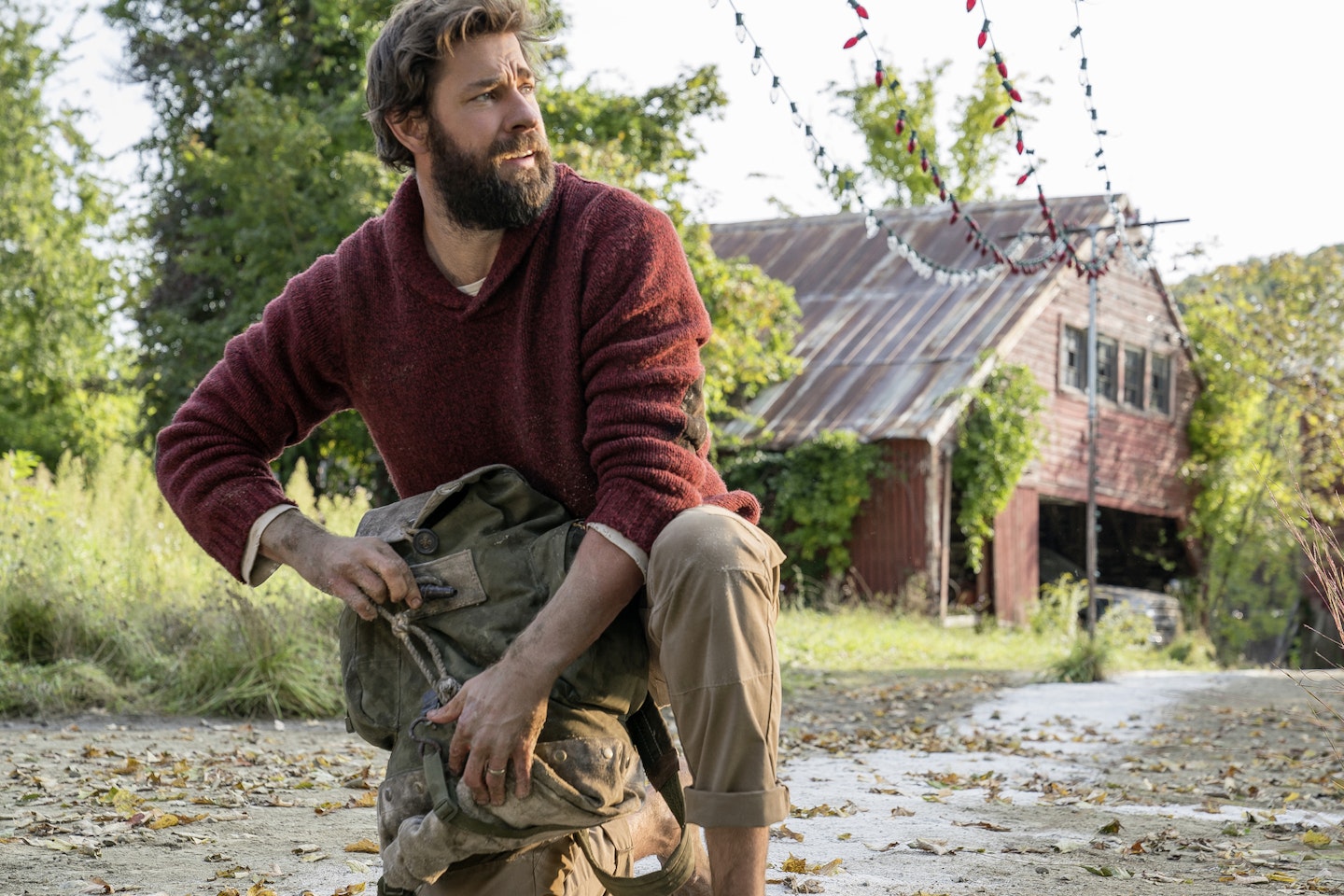
A Quiet Place first came to me as a spec script that the producers Drew Form and Brad Fuller had with Paramount. We were prepping for [TV series] Jack Ryan and Drew said to me, “Hey, quick question. Would you ever do a genre movie?” “You mean like a horror movie?” I asked. “I can’t watch horror movies, I’m way too scared. But yeah, maybe I could act in one if it was a cool idea.” So then he pitched me the one-liner — a family who can’t make a sound… or terrible things happen. I was immediately hooked.
At the time, we had just had our second daughter, Violet. So Emily and I were actually living through the terrifying first days of new parenthood. I was already an open nerve of emotions and fears — so as I read through the spec script I couldn’t help but obsess over the idea that this story could be so much more than just a scary movie. It could actually be one of the best metaphors for parenthood ever: “What would you REALLY do for your kids?” I immediately started writing down pages and pages of ideas. Those ideas quickly turned into scenes and I suddenly found myself rushing down the stairs to enlist my secret weapon: my wife. I’ll never forget Emily sitting on the couch, watching me bounce all over the living room as I pitched her one new scene after the next. I may or may not have been out of breath as I finally finished (definitely out of breath) and looked up to her. And then? Silence. I remember Emily just looking back at me with the most curious look on her face. (“Oh God, she hated it.”) Then suddenly — after a brilliantly delivered stage pause, btw — she finally said, “You need to direct this.” By the time I called the producers back only 48 hours later, I was indeed agreeing to be in the movie… if they would let me rewrite it... and direct.
After that phone call, we were off to the races. I finished the script in three months just before Christmas and by mid-January I was in idyllic upstate New York, scouting for the perfect location. And boy did we find it in this beautiful 19th century farm in the town of Pawling, NY. It was almost weird how perfect this place was. I remember crew members literally not believing me when I told them I hadn’t been there before I wrote the script. There was a beautiful farmhouse that faced a large weather-worn barn about 50 or 60 yards away, exactly as I’d written it. Those buildings were surrounded by hundreds of acres of crop fields, exactly as I’d written it. There was even a waterfall right nearby EXACTLY as I’d—you get the point! It was magic. And the coolest part was, not only was the location perfect, but there was a horse-riding school nearby that wasn’t currently in use, that we got to use as our soundstages. So for 90 per cent of the shoot, every member of the cast and crew got to call that magical farm home.
It wasn’t the convenience that made it all so special: it was the vibe. Everybody came on set and the first thing they saw was the farm and the last thing they saw was the farm. The dust in the air was from real corn; we got to shoot scenes with real sunrises and real sunsets. Some days it didn’t even feel like we were making a movie. It just felt like we were all at summer camp.
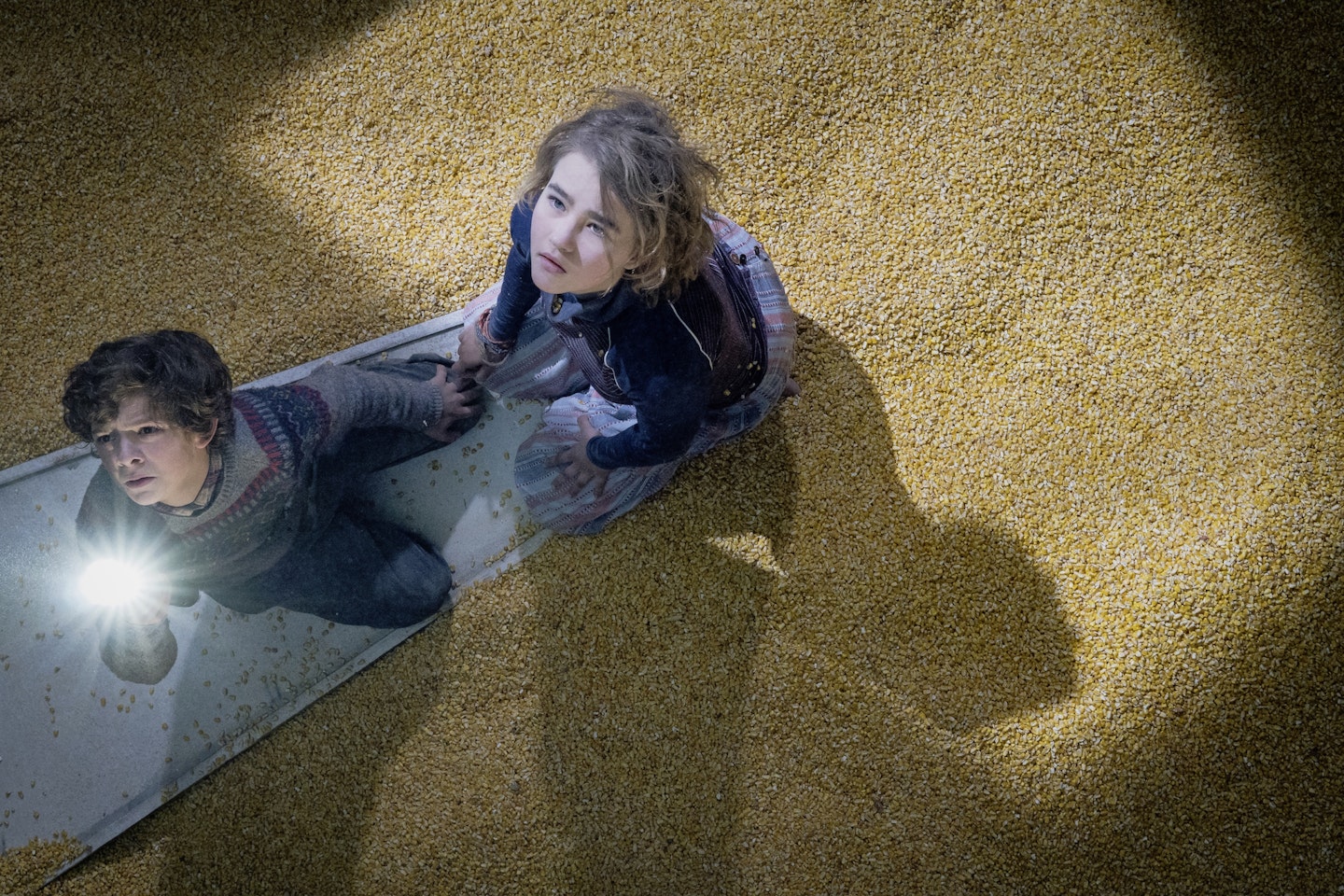
When it came to casting the movie, one of the most important things to me was that we were able to cast a deaf actress in the role of my daughter. I wanted to have someone who could not only understand the world of this character, but also help me to understand. Someone I could learn from. Well, it just so happens that one of the best actors I can now say I have had the pleasure of working with is deaf. Her name is Millicent Simmonds and she is phenomenal in every way. I was first introduced to Millie’s work by the tremendous casting director Laura Rosenthal, who had just cast Todd Haynes’ movie Wonderstruck. When I called Laura and pitched her the part she actually said the words, “There’s only one girl for this.” When I reached out to Todd directly his response was, “Millie is not only a fantastic actress… but one of the more special human beings you’ll ever meet.” Boy, was he right.
My luck continued in my quest to cast the part of my son. As luck would have it, the exact week I started casting happened to be the week of the SAG awards. Emily had been nominated for her part in The Girl On The Train, so we were there. After the ceremony, Emily and I were walking into the afterparty when one of my agent’s old assistants came running up to me. “Hey man, I’m an agent now and there’s this kid, Noah, I represent. I haven’t read your script but you gotta put him in your movie!” I don’t think he even knew what age the kid was supposed to be, but he told me Noah was in The Night Manager, and that Noah had just finished shooting Suburbicon. So I wrote to George Clooney to ask about him. His email back was almost exactly what Todd had said about Millie: “Not only is Noah one of the greatest child actors I’ve ever worked with (and I worked with them all on E.R.), but he’s one of the best actors I’ve worked with, period. Not to mention, he’s just the greatest kid.” Well, now I can attest he was exactly right. Noah is amazing.
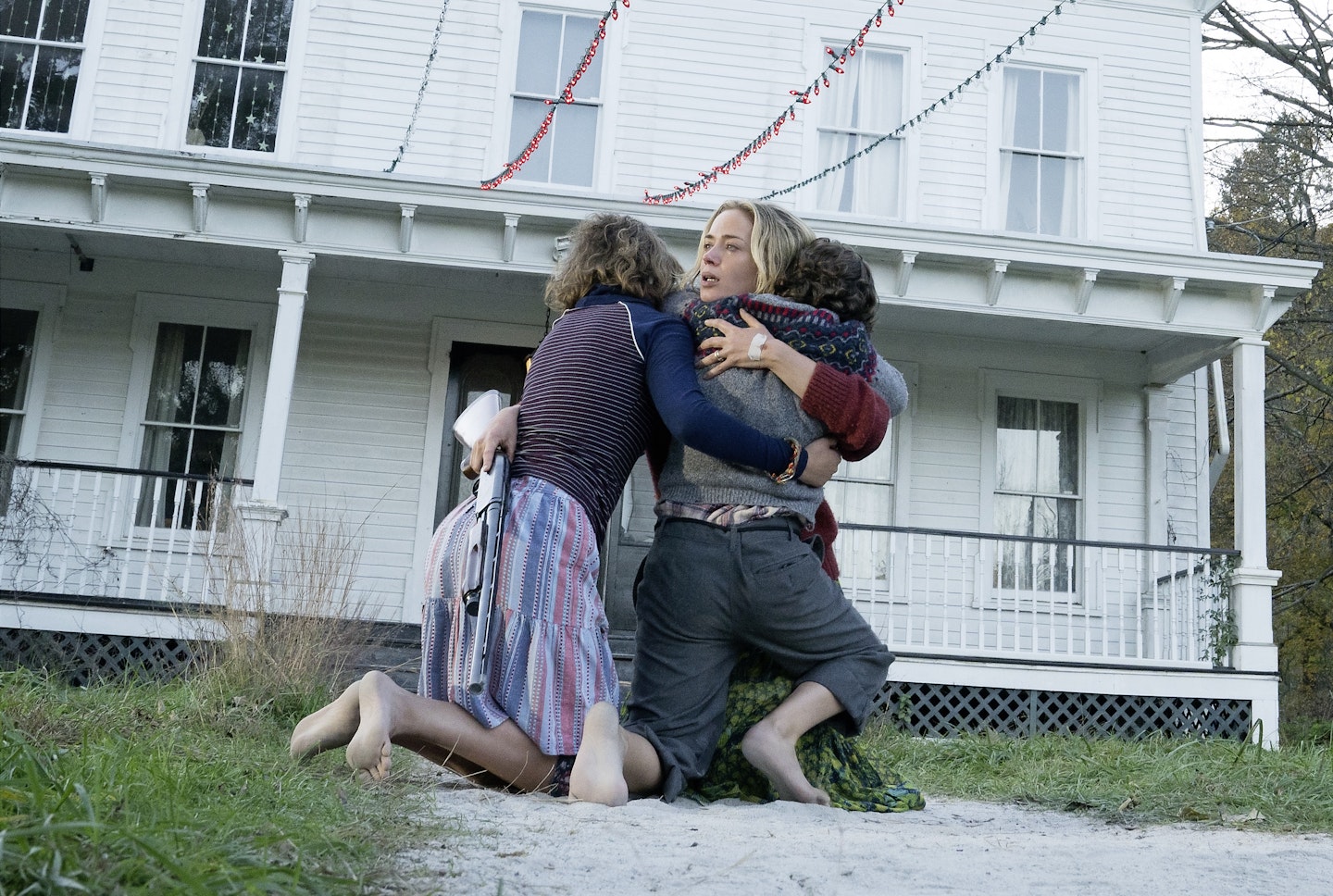
When it came to casting the part of my wife, Emily had actually recommended several different actresses based on my pitch of some of the scenes. Her being in the movie, we really hadn’t even considered. We had certainly talked about working together one day, but we never wanted the story of our being married to supersede the story of the movie we chose to do. So up until this point we just had never found the right script. Then one day Emily and I were on a flight to LA together. Emily asked if I felt far enough along with the script for her to read it. I was. But to be honest, holding her opinion higher than anyone’s, I have to admit I was the most nervous to have her read it. The flight continued and I was deeply engrossed in some huge action movie, when a shadow appeared next to me. I looked up to see Emily standing there. Her face looked different. At first, I thought she was feeling sick. Just before I was able to reach for a barf bag Emily simply said, “I have to play this part.” I was so stunned I asked her, “What?” She replied, “You can’t let anyone else play this part. I have to do it.”
I have to be completely honest when I tell you that that exact moment — having this woman that I admire and respect agree to do this movie with me — was the best compliment of my career.
The other question I get about directing is what is it like to direct myself. Well, for starters, it’s tough to deal with such a diva. But once we realise we’re both just here to make the best movie, things go fine. In all seriousness, I have actually found there are great advantages of being an actor in the movies I direct. One of the biggest is being able to stay in the scene with my actors. Sometimes, having a director behind the monitors calling cut after every take can ruin a flow or a groove that the actors are getting into. Especially in a movie like this, where there are so many intense scenes and emotional scenes, it helped a whole lot to keep the scene going, giving small notes right then and there in the moment. It almost felt at times like we were doing a play.
We shot on film, which was an easy decision and a hard fight.
The other major advantage is that on many occasions it just saves a ton of time. Having one of your lead actors on set every minute that you are… is great! Actually, writing these next benefits down it sounds like some riddle delivered by Yoda, haha, but it’s true! If I think of a last-minute shot I need to add me into — bam, there I am! If I need to make sure I don’t take too long in hair and make-up — bam, I pull myself out of hair and make-up. And if I’m shooting on the top of a silo with only ten minutes of perfect light, I don’t have to worry about me suddenly turning and asking, “What’s my motivation?” I’d already talked to myself about that the week before.
Our DP was Charlotte Bruus Christensen, who had shot The Girl On The Train, and Emily had had such a great experience with her that she was at the top of my list. I was extremely impressed by her work not only in that movie, but all her other movies as well. For our film, I was especially taken by all the movies she had done with Thomas Vinterberg. Charlotte has this unique perspective, and I thought she would be perfect to bring an intangible magic to the film. She’s a monster talent. We shot on film, which was an easy decision and a hard fight. There’s all sorts of reasons and benefits for shooting on digital; I shot my last movie on digital and loved it. But there was something about this movie that I wanted to harken back to a more classic look, a feeling of nostalgia one could immediately connect to. We both decided the only way to capture that was to shoot on film.
I had a lot of fun coming up with all these different visuals to explain that this family cannot make any noise, not ever. That’s why there’s paint on the floor of the house, showing where to put your feet to avoid creaking boards, and paths made of sand around the farm. It was also fun to play with perspective. The idea that you can hear a footstep on a close-up lens, but when you jump to medium you can’t. Things like that deliver information and the rules of the film to the audience subconsciously. Making a mostly silent movie was thrilling… and terrifying. But there were upsides. I remember one day we were shooting by this beautiful river. Aaaaand that just happened to be the day that two guys decided to race their ATVs in the woods right behind us. We had crew members running through the woods trying to find them to tell them to stop, but could never get to them. Normally you lose a whole day of shooting if that happens. The dialogue would be unusable. But in our scene? There was no dialogue. It didn’t matter.
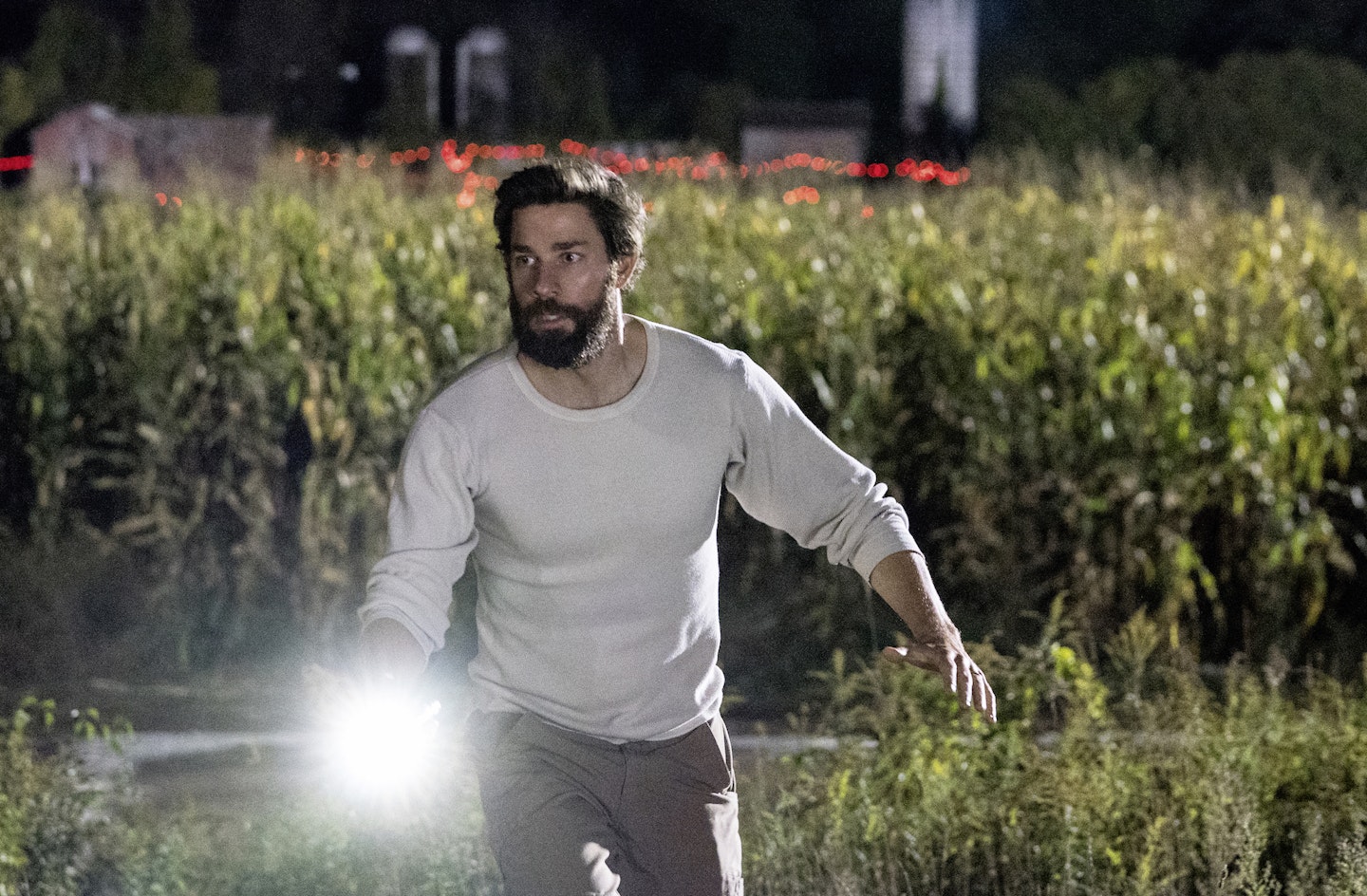
Honestly, one of the most amazing aspects of this process has been working with our incredible sound team. This film is a sound department’s dream, because the tiniest sound matters. Usually you might just put one big atmos microphone up to record ambient sound. Here, the sound guys came for a full weekend to capture different wind directions, and recorded at multiple times of day to catch all the local insects. They even put lapel mics on individual corn stalks to get all these layers of sound. Marco Beltrami, who’s incredible, is writing the score, and the first thing he did was call them and say, “You gotta give me all of that because I can compose with it!” Marco said it was only the second time in his career he’d been able to visit a set; he was so excited after coming to visit that at the end he just turned to us and said, “Man, I gotta get home and start writing.”
And then there’s the creature. Oh man, I can’t even describe how I feel about the fact that ILM is working on my movie. We have Scott Farrar supervising our VFX, one of the original ILM guys. In between takes I would sit totally engrossed as he casually told us how they shot the Imperial Star Destroyer in Star Wars, or how they shot the Raptor kitchen scene in Jurassic Park. I remember someone telling me that one of the strongest things someone can do is say, “I don’t know.” So the first thing I told Scott was, “Look, I’ve never done this before, so I’m going to tell you my ideas and you tell me how I can make them all better.” We spent the whole day talking about shots, and he gave me incredible tips like making sure to move the camera a little on the creature shots. They learned on Transformers that a static shot, no matter what you do with it, is just not that scary — but if the camera moves and the creature’s head goes out of frame for a moment, it seems more real.
One cool thing about working with VFX is that you learn very fast… you have to!
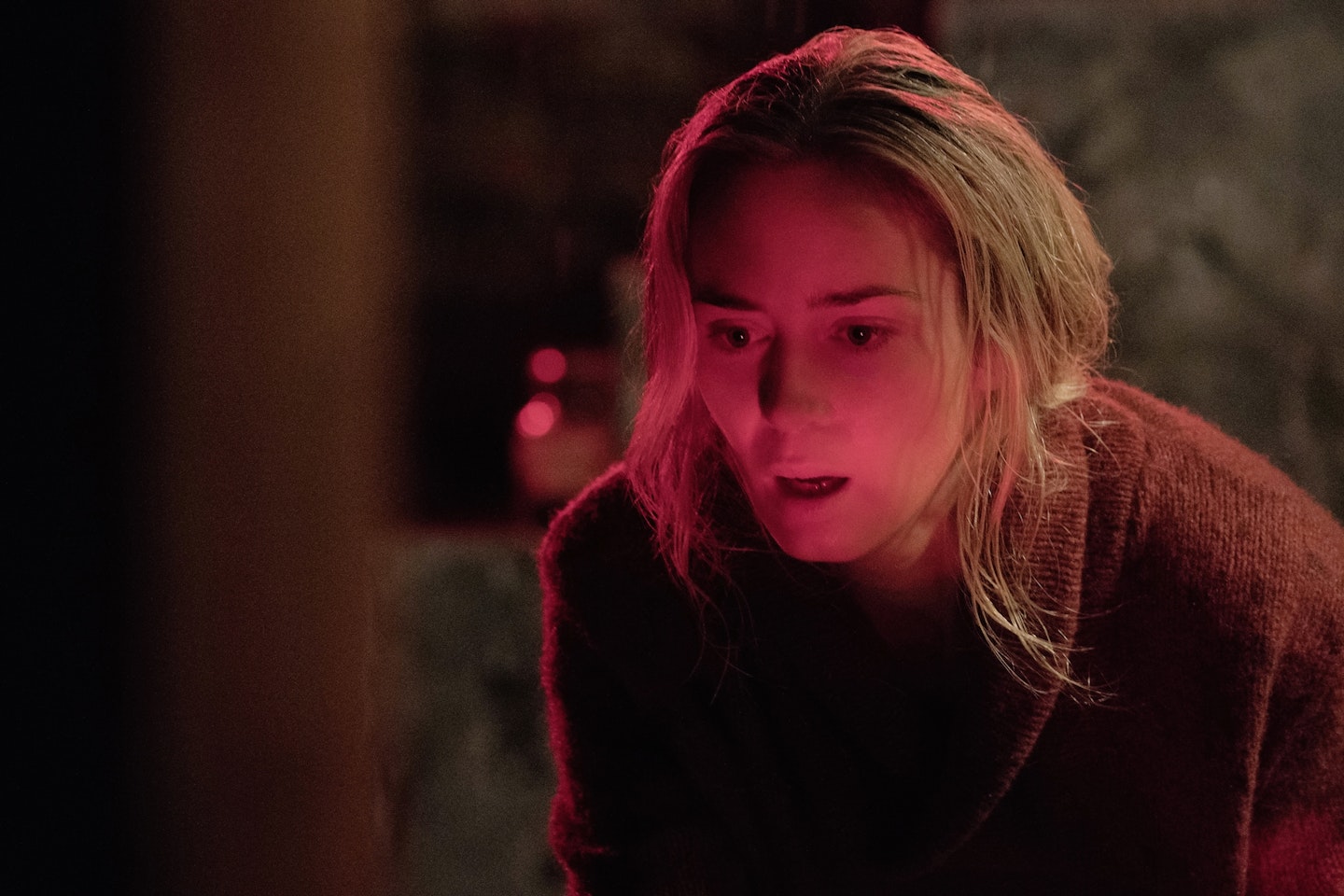
As I’m sure is evident from my ramblings, the experience of this movie was incredible. I remember the last night we shot, one guy in the crew came up to say goodbye and as he turned to leave, actually laughed and said, “There’s something about this one. I don’t know. It feels special.” And he’s right. I have to give a tremendous amount of credit and gratitude to Paramount. It’s not every day that a major studio allows you to go off and shoot a mostly silent movie. But, from the moment I pitched them what I hoped this movie could be, they saw it. It’s special because it was treated as special, by every single person that came on board. This is one of those rare experiences where it all came together in the right way. I know you don’t get many experiences like that. And, hey, if I never have another one as good as this, that’d be okay. I just feel lucky as hell to have been able to have one that I care this much about.
Hear John Krasinski talk A Quiet Place in our Spoiler Special Podcast episode, and read about some of the most surprising things he told us here.
